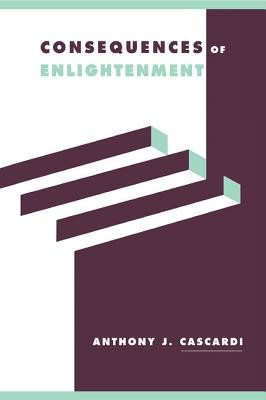
- We will send in 10–14 business days.
- Author: Anthony J Cascardi
- Publisher: Cambridge University Press
- ISBN-10: 052148149X
- ISBN-13: 9780521481496
- Format: 14.2 x 22.1 x 1.8 cm, hardcover
- Language: English
- SAVE -10% with code: EXTRA
Reviews
Description
What is the relationship between contemporary intellectual culture and the European Enlightenment? In Consequences of Enlightenment, Anthony Cascardi revisits the arguments advanced in Horkheimer and Adorno's seminal work Dialectic of Enlightenment. Cascardi argues that postmodern culture does not reject Enlightenment beliefs and explores the link between aesthetics and politics in thinkers as diverse as Habermas, Derrida, Arendt, Nietzsche, Hegel and Wittgenstein. He reverses the tendency to see art simply in terms of the worldly practices among which it is situated. Aesthetic objects, he argues, are themselves capable of disclosing truth.
EXTRA 10 % discount with code: EXTRA
The promotion ends in 15d.23:04:04
The discount code is valid when purchasing from 10 €. Discounts do not stack.
- Author: Anthony J Cascardi
- Publisher: Cambridge University Press
- ISBN-10: 052148149X
- ISBN-13: 9780521481496
- Format: 14.2 x 22.1 x 1.8 cm, hardcover
- Language: English English
What is the relationship between contemporary intellectual culture and the European Enlightenment? In Consequences of Enlightenment, Anthony Cascardi revisits the arguments advanced in Horkheimer and Adorno's seminal work Dialectic of Enlightenment. Cascardi argues that postmodern culture does not reject Enlightenment beliefs and explores the link between aesthetics and politics in thinkers as diverse as Habermas, Derrida, Arendt, Nietzsche, Hegel and Wittgenstein. He reverses the tendency to see art simply in terms of the worldly practices among which it is situated. Aesthetic objects, he argues, are themselves capable of disclosing truth.


Reviews